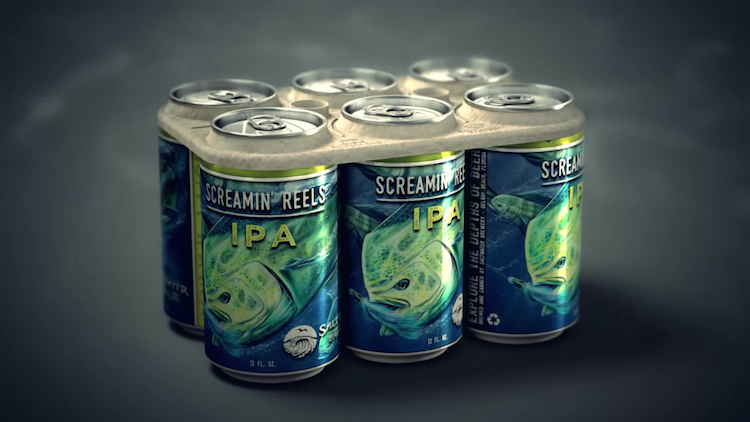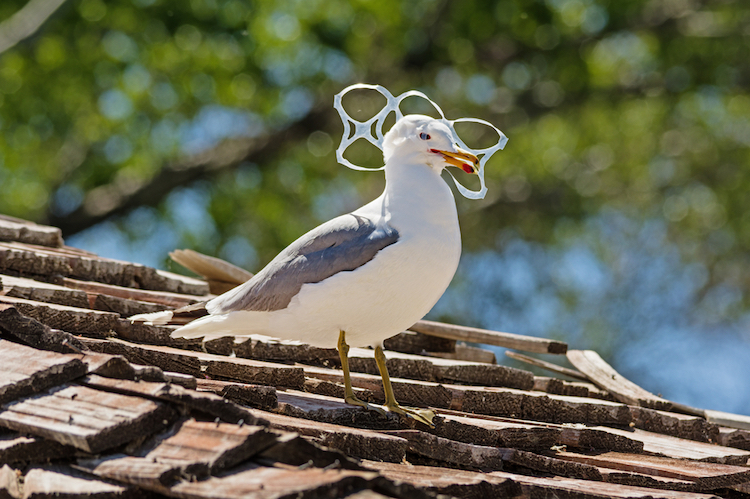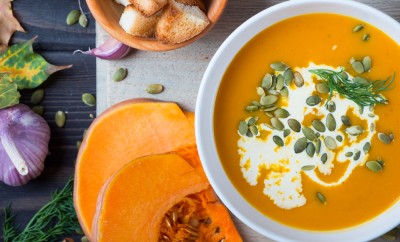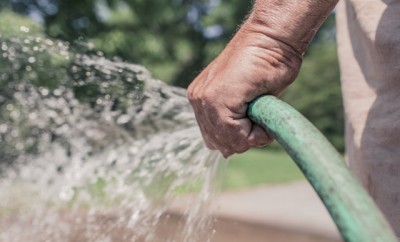Environment
Edible six-pack rings will feed sea creatures

Image: Saltwater Brewery
People who use the ocean as their trashcan don’t consider the impact of their actions on the environment, or anyone. We’ve all encountered drunken maniacs and stumbled upon sites of discord, beer cans, plastic solo cups and six-pack rings littered on the ground. When this trash makes its way into the water, it places sea creatures at risk for death or injury. Now, thanks to a Florida-based brewery, edible six-pack rings can begin to feed wildlife instead of ensnaring it.
Saltwater Brewery opened its doors at the end of 2013, and since then the company has been on a mission to protect the “world’s greatest wonder” by using natural ingredients and supporting Ocean Based Charities (CCA, Surfrider, Ocean Foundation, MOTE). Recently the brewery partnered with the innovative ad-agency WeBelievers to create their new edible six-pack rings. Biodegradable and digestible, this packaging is made from byproducts of the brewing process such as wheat and barley. So if it’s not ingested, it will simply decompose.
Seems like our sea creatures might be able to enjoy beer with us now. The door has opened for many possible reimagining of beverage packaging on a grander scale.
What are edible six-pack rings?
AdAge estimates that half of the 6.3 billion gallons of beer drunk by Americans every year is sold in cans, which are often packaged with plastic rings. Companies have tried to redesign six-packs before with not much success; at the end of the day, plastic has been the most efficient and resilient material to use for not just alcohol products, but sodas, bottled water and other beverages as well.
While the guys at Saltwater wanted these edible six-pack rings to be completely comparable to traditional holders, they found that the new rings aren’t as cheap to produce. In April they 3-D printed a test batch of 500 rings before matching their current output of 400,000 cans of beer. Production costs are a necessary evil to consider, which is why plastic has remained the most sought after material to use. Over time rings have been made to be photo-degradable, meaning that they dissolve in the sun within 90 says, but this still doesn’t keep animals safe. So is our wildlife worth a few extra bucks? You bet. Besides, if edible six-pack rings become industry standard then chances are costs will reduce.

Image: Tom Grundy/Shutterstock
The threat of plastic
It’s no secret that humans tend to destroy the environment they inhabit in order to expand, and animals have suffered greatly from the fires of industry to the point of causing beleaguered species to become endangered. A study from Marine Pollution Bulletin found that as of 2014 nearly 700 species of wildlife have had contact with man-made debris, with seventeen of them at risk of extinction.
Plastic is plastic, and it hurts our wildlife no matter what design it has. While six-pack rings might not make up a huge percentage of the plastic floating out there, even this small amount is significant because plastic is the most prolific bane of sea wildlife conservationists. According to the same study, plastic products make up about 92% of the debris threatening wildlife. Investigations such as the one Ocean Conservancy undergoes each year report an increasing number of cases where plastic and non-biodegrable articles were found inside marine life. In recent years, plastic has been found to contain toxic chemicals.
The chance of changing the landscape of alcohol packaging is a tall order, and it might not be achievable. But, with increased awareness and encouragement, breweries can slowly make a difference for our marine wildlife.





1 Comment